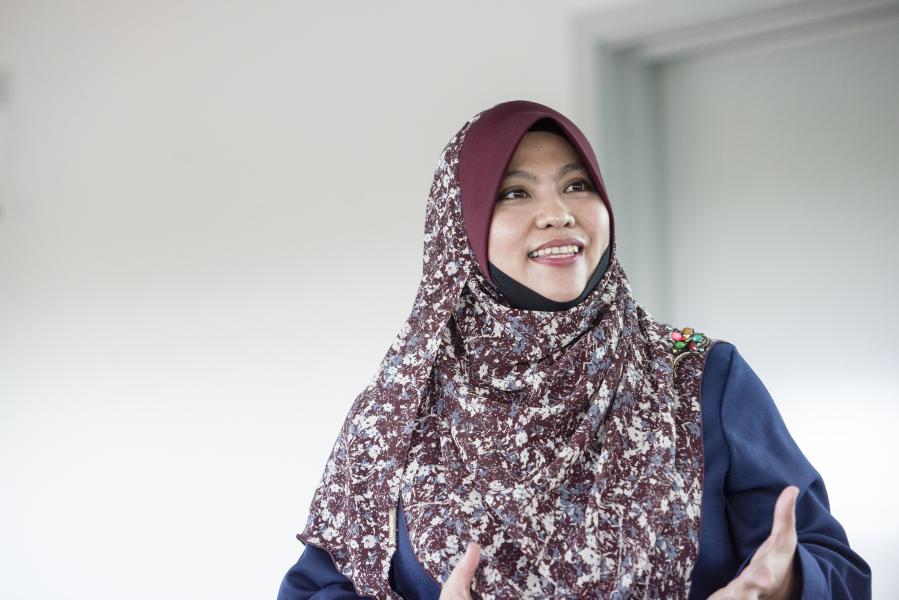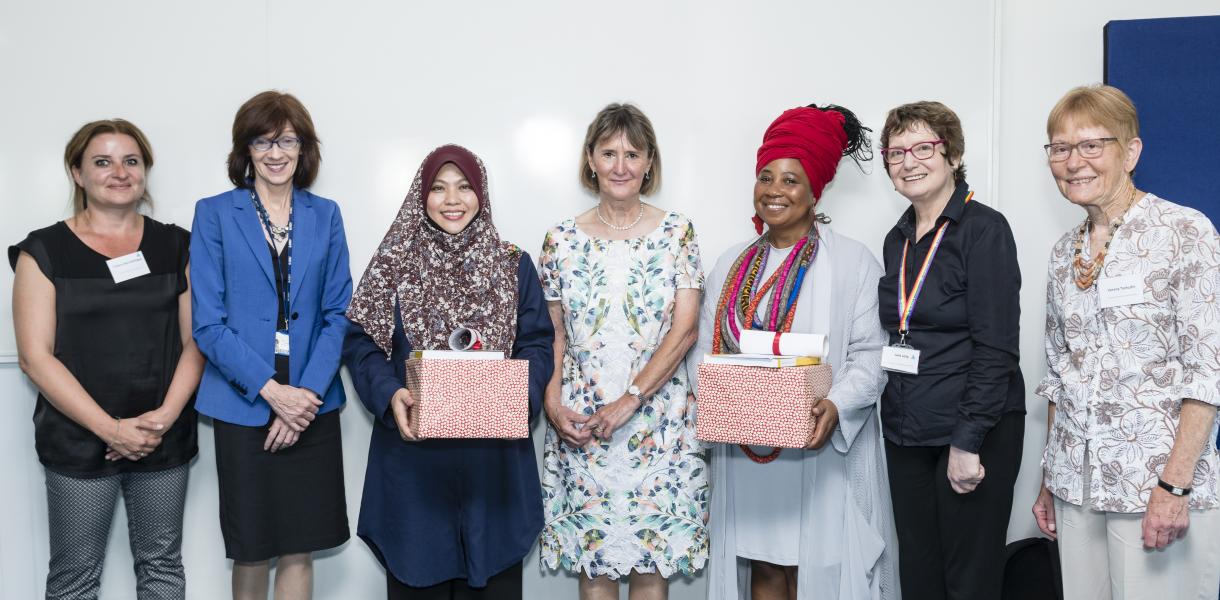A passion for protecting patients
The award-winning alumna inspiring the next generation of nurses at the University of Brunei.
Since gaining her PhD in nursing from Edinburgh in 2017, Yusrita Zolkefli has been passing on her wisdom to the next generation of nurses at the University of Brunei, Darussalam. As Assistant Professor of Nursing and Midwifery at the Institute of Health Sciences there, she inspires her students and fellow nurses to promote the rights of patients.
Her passion and drive led colleagues and friends to nominate her for a Human Rights and Nursing Award, which she went on to receive at the 20th International Nursing Ethics Conference in July.
She talks to Edit about winning the award, her recent visit to Edinburgh and the importance of ethics in nursing education.
What does your role as a lecturer at the University of Brunei involve?
My part mostly includes teaching, doing or supervising research, writing papers and reviewing manuscripts. More recently, I have been appointed as Chair of the Institute of Health Sciences Research Ethics Committee (from August 2019). I previously played the role of co-chair (2017/18) and member (2016/17).
Why were you drawn to your career?
I always wanted to teach and somehow nursing became a stepping stone for me to achieve my dream. Furthermore, when I first studied nursing in 1999 at a nursing college in Brunei, nurses were always perceived in high demand. Indeed, nursing offers a wide range of career opportunities.
What do you love about your job and why? And what do you find challenging and why?
Teaching students and engaging their interest in my subject is highly rewarding. It allows me to shape and inspire the next generation of nurses. I also love my job because I get to engage with nurses through a monthly seminar that I organised. I wish to make the language of ethics easier and make sense for nurses. Some of the key challenges when working as an academic are those long hours. Sometimes in trying to meet deadlines of teaching, researching and writing papers, I have to sacrifice time for family and hobbies, and at times I have to work in the evenings and on the weekends.
Your colleagues recently nominated you for the International Care Ethics Observatory at the University of Surrey’s Human Rights and Nursing Award, which you won. Congratulations. Could you explain why you won the award?
This award is presented to any nurse in recognition of an outstanding commitment to human rights and exemplifying the essence of nursing’s philosophy of humanity to further their work. I guess the organisers recognised my passion in the teaching and research of nursing ethics in Brunei. It might have also started when I presented in several nursing ethics conferences in India in 2014 and Belgium in 2017.
 `
`  `
`  `
` 


How did it feel to win the award?
It is an absolute honour. This award has inspired me to keep going in doing what I love most. I already feel an increasing sense of responsibility in giving more to the community.
After accepting the award, you visited Edinburgh and caught up with your PhD supervisors. How did it feel to be back at the University?
Edinburgh has been particularly so special to me. It has shaped me into a better person. Sometimes I wish I could go back to the first year and do it all over again.
The University has always been known to be a research-intensive university. I was fortunate to have been supervised by experts such as Professor Kath Melia, Professor Kenneth Boyd and Dr Colin Chandler. They made my PhD years the most rewarding learning process.
You played a central role in the development of the professional ethics curriculum in Brunei, why is ethics education important to you?
In my earlier teaching of ethics, I noticed that the students did not see the importance and relevance of ethics. Ethics was very much viewed in a narrow lens of cultural and religious reasoning. I believe that ethics education is one of the fundamental platforms to help increase the students' awareness and appreciation of the ethical dimension and issues. Ethics education allows the students to possess the skill for ethical analysis.
What kind of ethical dilemmas do nurses face?
The difficulties vary. It could be candid, for example, the issue of respecting patient refusal to treatment. But dilemmas can be so embedded in many dimensions in their practice, for example, ethical dimensions within the work environment, in the nurse and doctor relationship, or ethical aspects in patient care.
As a lecturer how do you inspire students to promote nursing ethics and protect the rights of patients?
By making the language of ethics simple, understandable and exciting. The only way to achieve this is by making the teaching and learning of ethics as appealing as possible. For example, with students I utilise seminars, class debate, roundtable discussion and, recently, “legal café” where students deliberate on court cases in a café-style classroom (with background music, coffee and biscuits). With nurses, I meet them in monthly hospital seminars that I organised for free.
Who or what are your main influences?
The nursing community themselves. They are the unsung heroes of healthcare where they work tirelessly to provide comfort and care for their patients.
Who would you like to celebrate?
Has Yusrita’s story got you thinking about the achievements of another former Edinburgh student? Are there inspiring University of Edinburgh people who should be celebrated?
We are relaunching our alumni awards later this year and we want to know about the people who inspire you. The Being Edinburgh awards will highlight members of our community who make us feel better about the world. Whose life makes you glow with positivity and pride?
Details of the nomination process will be released shortly, so in the meantime please reflect on who you would like to celebrate and why.

